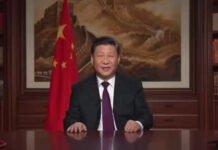China’s Pressure and Sri Lanka’s Response : In a significant policy reversal, Sri Lanka has opted to permit foreign research vessels to access its ports, yielding to pressure from China. The Sri Lankan government’s decision marks a stark departure from its earlier stance, where it had imposed restrictions on such activities. The recent development comes on the heels of a diplomatic standoff initiated by China following Sri Lanka’s permission for a German survey ship to dock at one of its ports.
India’s Concerns Prompt Sri Lanka’s Ban
Notably, India had expressed apprehensions regarding the presence of advanced research ships in Sri Lanka’s waters. Responding to India’s concerns, the government of Ranil Wickramasinghe had imposed a one-year ban on offshore research vessels docking at Sri Lankan ports. This move was indicative of Sri Lanka’s diplomatic balancing act between its regional allies and global powers.
A Strategic Shift: Sri Lanka Welcomes Foreign Ships
Despite initial reservations, Sri Lanka has officially reversed its stance, now welcoming foreign ships to dock and load goods at its ports. However, the Sri Lankan Foreign Department spokesperson clarified that while permission has been granted for docking, foreign vessels will be restricted from conducting any research activities within Sri Lankan waters.
China’s Reaction and Past Incidents
China’s discontent with Sri Lanka’s evolving maritime policies is evident from its reaction to recent developments. In February, Sri Lanka denied docking permission to a Chinese ship, prompting dissatisfaction from Chinese authorities. This incident followed a pattern of tensions between the two nations, with past incidents including a Chinese ship docking at Hambantota port in August 2022 and another research vessel stopping at Colombo port in October 2023. These actions have not only strained Sri Lanka-China relations but have also drawn India’s attention, leading to concerns over regional security dynamics.
Implications for Regional Dynamics
Sri Lanka’s decision to allow foreign research vessels access to its ports carries significant implications for regional dynamics. By acquiescing to China’s demands, Sri Lanka risks alienating other regional powers, particularly India, which has historically maintained close ties with the island nation. Moreover, the move underscores Sri Lanka’s delicate balancing act as it navigates complex geopolitical interests in the Indian Ocean region.
















